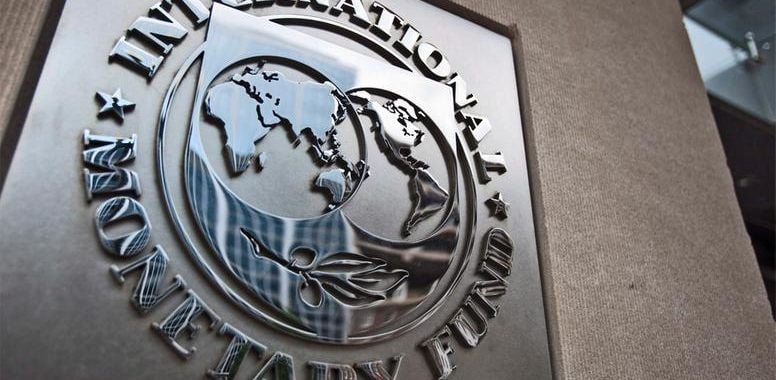IMF: Nigeria Missing from Africa’s Fastest-Growing Economies Despite Improved Outlook
The International Monetary Fund (IMF) has revealed that Nigeria is not among Africa’s fastest-growing economies, as countries like Benin Republic, Côte d’Ivoire, Ethiopia, Rwanda, and Uganda continue to dominate the continent’s growth chart.
The IMF said these five nations are now ranked among the world’s fastest-expanding economies, crediting their success to consistent policy reforms, sound fiscal management, and growing investments in manufacturing and infrastructure.
Speaking during the launch of Sub-Saharan Africa’s latest Regional Economic Outlook on Thursday, the IMF’s Director for the African Department, Abebe Selassie, said the region’s economic growth was projected to hold steady at 4.1% in 2025 and edge higher in 2026.
“It is important to note that several countries in the region—Benin, Côte d’Ivoire, Ethiopia, Rwanda, and Uganda—are among the fastest-growing economies in the world,” Selassie said.
He explained that while the region had shown resilience amid global turbulence, growth remained uneven, with resource-dependent and conflict-affected countries—including Nigeria—still lagging behind potential.
This comes despite the IMF’s upward revision of Nigeria’s growth forecast, projecting a 3.9% expansion in 2025, driven by higher oil production, improved investor confidence, and better fiscal coordination. The revision represents a 0.5 percentage point increase from previous projections, signalling cautious optimism about Nigeria’s recovery.
Nigeria’s National Bureau of Statistics (NBS) also reported that the country’s GDP grew by 4.23% year-on-year in the second quarter of 2025, up from 3.48% in the same period of 2024—thanks to improved oil output and non-oil sector recovery.
However, the IMF warned that Nigeria’s growth was still below its true potential, urging the government to deepen structural reforms, boost electricity supply, and expand non-oil revenues through industrial diversification and stronger tax systems.
Selassie also raised concerns about rising financial vulnerabilities across the region, noting that as external financing dries up, many African governments are increasingly relying on domestic banks, creating a risky “sovereign-bank nexus.”
“About half of public debt in the region is now held by domestic financial institutions,” he warned. “This trend, while providing short-term relief, heightens risks to financial stability, especially where debt and interest rates are high.”
The IMF called for stronger oversight, better capital buffers, and healthier public finance strategies to avoid spillover risks into the banking system.
Inflation, although easing in some countries, remains stubbornly high in many others, including Nigeria. Selassie attributed Nigeria’s recent moderation in inflation to tighter monetary policy and a more flexible exchange rate, but said prices remain elevated due to structural rigidities.
“The decline in inflation is consistent with policy tightening, but inflation remains sticky due to a level shift—prices have settled at higher levels. Continued policy discipline will be needed to reach the government’s targets,” he said.
The IMF also warned that borrowing costs remain high, even as market access improves, and urged African countries to be cautious with expensive external loans.
Despite the challenges, the Fund praised Nigeria’s ongoing reforms, describing its fiscal stance as “neutral”—a balance between spending and taxation that supports anti-inflation measures without hurting growth.
Davide Furceri, Division Chief at the IMF’s Fiscal Affairs Department, said Nigeria’s recent fiscal and monetary actions were moving in the right direction.
“Nigeria has done quite a lot in the past years—streamlining tax codes, reducing wasteful spending, and easing burdens on businesses. These are policies that go in the right direction,” he said.
Tobias Adrian, IMF’s Director of Monetary and Capital Markets, added that Nigeria’s exchange rate reforms and tighter monetary policies had strengthened policy credibility and improved foreign exchange transparency.
“A depreciating exchange rate is not necessarily bad—it can help restore balance,” Adrian said. “Nigeria’s steps to strengthen its policy framework are commendable.”
Read Also;
DSS Warns Nigerians Against Dismissed Officer Impersonating the Agency
Assistant Director Jason Wu also noted that higher revenues and better FX reserve management had helped reduce inflation from over 30% last year to about 23% this year, showing positive momentum.
However, Wu warned that Sub-Saharan Africa still faces external risks—including volatile commodity prices, slower global growth, and the potential for renewed capital outflows.
He urged governments to maintain fiscal discipline, manage debt prudently, and pursue structural reforms to strengthen long-term resilience.
“It’s vital for countries to improve fundamentals—fiscal, monetary, and structural—to attract sustainable investment and avoid vulnerability to global shocks,” Wu said.
In conclusion, the IMF acknowledged the resilience and reform progress across the region, especially in countries like Nigeria, but stressed that more decisive actions are needed to unlock sustainable growth and place Africa’s biggest economy back among the continent’s top performers.




